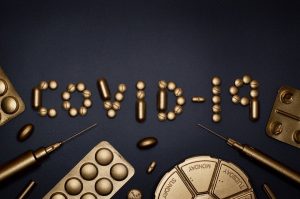What are the skin symptoms of patients with novel coronavirus pneumonia?
Skin damage is rarely seen in adults with novel coronavirus pneumonia, and only a small number of children can have multisystem inflammatory syndrome in the recovery period, mainly manifested as fever with rash, non purulent conjunctivitis, mucosal inflammation, hypotension or shock, coagulation barrier, acute gastrointestinal symptoms, etc. once children have multisystem inflammatory syndrome, their condition will deteriorate rapidly.
The manifestations of novel coronavirus pneumonia in adults are mainly fever, cough and fatigue. A small number of other patients may have symptoms such as nasal congestion, runny nose, myalgia, diarrhea, anorexia, sore throat, nausea and vomiting. Severe patients can have dyspnea or hypoxemia within one week, and critical patients can have rapid disease progression, such as acute respiratory distress syndrome, septic shock, and multiple organ failure. Most children’s symptoms are relatively mild or atypical, only showing symptoms of digestive tract or poor response, shortness of breath, etc., so novel coronavirus pneumonia rarely causes skin damage.
Why can we drink beer in moderation only one week after the covid-19 vaccine?
Beer contains alcohol, which is irritating to a certain extent. Drinking alcohol after vaccination will easily aggravate the adverse reactions and cause physical discomfort. At the same time, it will affect the vaccination effect. After receiving the covid-19 vaccine, we should also pay attention to adverse reactions. Common adverse reactions include allergic rash, digestive tract reaction, systemic reaction, allergic shock, etc.
- Allergic rash
Some patients may have allergic rashes, which usually occur within hours to days after the injection of covid-19 vaccine, and are manifested as urticaria or maculopapular rash on the face, behind the ears, trunk, limbs and other parts. It is generally manifested as a red wheal like rash, accompanied by obvious itching symptoms. Most of the rashes resolve spontaneously within 1-2 days, generally without any treatment. In case of severe rash or persistent rash, go to the hospital in time, take oral antiallergic drugs, such as cetirizine and loratadine, and use prednisolone when necessary.
- Digestive tract reaction
Patients may have gastrointestinal symptoms such as loss of appetite and nausea within half a day to three days after injection. Generally, they do not need special treatment and can relieve themselves.
- Systemic reaction
Some patients usually have fever 6-24 hours after the injection of the vaccine, and the general temperature is about 37.5 ℃. Headache may also be caused by fever, which generally does not require special treatment and can subside naturally within 2-3 days.
- Anaphylactic shock
The incidence of anaphylactic shock is low, which usually occurs at the time of injection of covid-19 vaccine or within a few minutes to 45 minutes. The patient’s blood pressure drops, his limbs are cold, his whole body is itchy and cyanotic. If he has laryngeal edema, he may also have chest tightness, suffocation, dyspnea, asphyxia and other symptoms. If he does not give first aid in time, his life will be in danger. Therefore, after vaccination, observe within 30 minutes to prevent emergency.
After the covid-19 vaccine, try to eat light and digestible food and drink more water. Avoid drinking drinks containing ethanol, reduce the intake of greasy and irritating food, and do not eat seafood, eggs and other hair products to avoid aggravating discomfort symptoms such as fever.




[…] You can read more about : Why can we drink beer in moderation only one week after the covid-19 vaccine? […]